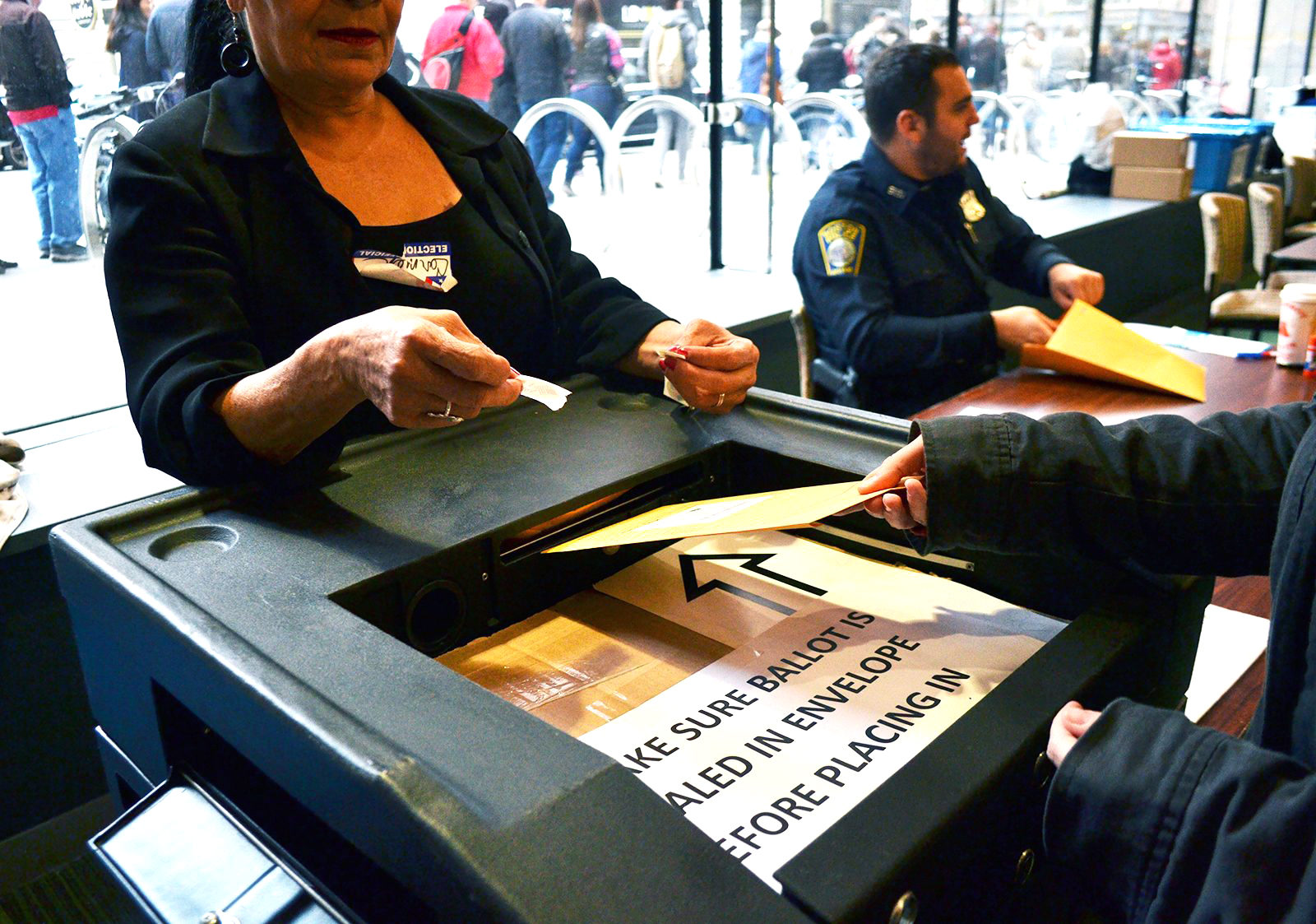
A bill recently introduced in the Massachusetts legislature would grant cities the choice to lower their voting age threshold to 16 years old.
While the state’s voting age would remain unchanged, the Empower Act would allow individual municipalities to freely enfranchise 16 and 17-year-olds for local elections. Right now, cities that wish to lower their minimum voting age must petition the state legislature for approval.
Members of MassVOTE, a nonprofit working to increase voter participation in the state, had previously spoken to the Boston City Council about lowering the city’s voting age. According to the organization’s Young Civic Leaders Coordinator J. Cottle, the councilors responded positively to the idea.
“In order for them to make that kind of change,” Cottle said, “they would have to all get together, put together a bill, perform what’s called a home rule petition to the state level and the state would have to decide.”
As the U.S. Constitution explicitly delegates to states the power to regulate elections, municipalities in Massachusetts wishing to deviate from the statewide voting age may do so only with state permission.
The petition process consumes time and resources, according to a document from the Massachusetts Division of Local Services.
“For a city or town, the process of drafting, authorizing, filing and waiting for the approval of a special act creates financial, administrative and political burdens,” the document stated. “For the Massachusetts Legislature, annually there is a large volume of special acts before them for approval.”
Cottle said this requirement incentivized MassVOTE to tack onto the Empower Act when it began circulating, as its passage would cut the red tape that currently hinders municipalities’ ability to enact this type of change.
While Cottle said he hopes to eventually see a lowered voting age in state and federal elections as well, he said the local focus of the Empower Act is an effective place to kickstart interest in civic participation.
“[Municipal elections] matter in your everyday life,. This is what’s going to fix your streets, your schools, your home, your life,” Cottle said. “Obviously voting for president is very important. But a lot of the direct work is going to be felt on these local elections.”
A common complaint Cottle hears from voters in presidential elections is that the Electoral College makes them “feel like their vote doesn’t matter.” But citywide elections, he said, constitute true direct democracy.
“It really is you having a voice and putting a vote forward, and these are the votes where you’ll feel the change most quickly and most powerfully,” Cottle said.
Kristina Mensik, assistant director of nonprofit election advocacy group Common Cause Massachusetts, said with the current voting age at 18, many citizens gain their suffrage just as they are moving out of their home state.
“Lowering the voting age to 16 or 17 will make it easier for young people to get in the habit of voting while they’re still at home in particular,” Mensik said. “I remember when I was in college, there were a lot of young people, a lot of my peers, who had trouble casting ballots out of state.”
If the bill passes, Mensik said she believes younger voters would take advantage of any enfranchisement offered to them by their city, though the effects would not be instantly obvious.
“What we generally know about election reforms is that they tend not to create these immediate windfall effects, particularly looking at things like voter turnout,” Mensik said. “I think that the energy is there, and I think that young voters would certainly get to the polls.”
Fenway resident Delaney Gagnon, 21, said she feels the younger population should have a voice through the ballot because they are an untapped host of “good ideas.”
“I think actually a lot of change happens on the local level, especially changes related to schooling and other things that impact young people,” Gagnon said. “They should probably have a voice in those types of issues.”
Joel DeWolfe, 49, of North Andover said that as he himself has a child of similar age, he thinks voting is a responsibility that requires a higher level of maturity than many teenagers have.
“Not saying that some aren’t highly qualified,” DeWolfe said. “My own teenager is very into politics, but I think for the population at large, it’s probably better to keep it at 18.”
16-year-old Tyree Beaute of Medford said he is hesitant about the idea of lowering the voting age, but can see the argument for it.
“Some people might take it as a joke,” Beaute said, “and some people might take it seriously.”






















































































































